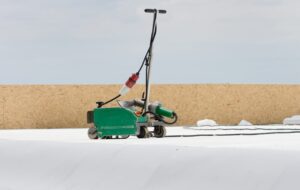If you have a roof that leaks over time, it’s time to get it fixed. A good way of making sure you do not have to encounter this circumstance is to choose Spray Polyurethane Foam (SPF) for the roof of your house.
There are plenty of advantages with spray foam roofing, which convinces most homeowners to pick this roofing material for their houses.
1. Residue Water Does Not Stay In One Area
After a heavy rainfall, it is quite common to see residue water collect in some areas on the roof. It is essential that the rainwater is drained out from the roof. If you insulate your roof using spray foam, you can solve the problem of residue water collecting on your roof. Spray Foam roofs have the property of being seamless. They don’t have joints as they have numerous tiny closed cells that make it implausible for fluids to pass through.
2. Lightweight
As you can infer by the name itself, spray foam is extremely light. If you have to reroof the house, you will find it simple to install this lightweight insulation. You wouldn’t even have to make any major changes to your original roof. The best part is, it will take you a short amount of time period to get this easily applied spray foam installed in your roof.
3. Property of an Insulator
One of the qualities of spray foam roofs is that they are deemed as an excellent insulator. They are odorless and unreactive. Although spray foam can resist sharp solar radiations, they need to be covered with U.V. resistant elastomeric roof coating system.
4. Durable and Long-Lasting
Even at varying temperatures, spray foam roofs stay robust and durable. They can bear contraction and expansion. Since they have less weight and are extremely sturdy, they do not droop or sag. You can expect a high quality spray foam to last you for up to 20 years.
5. Easy Maintenance
You are not required to put much upkeep and looking after in case of spray roofs. On the other hand, this doesn’t mean you neglect its maintenance completely. In case of minor repairs or modifications, you can easily have it done at a nominal cost.



